Woman of Influence: Birmingham City Councilor Lashunda Scales
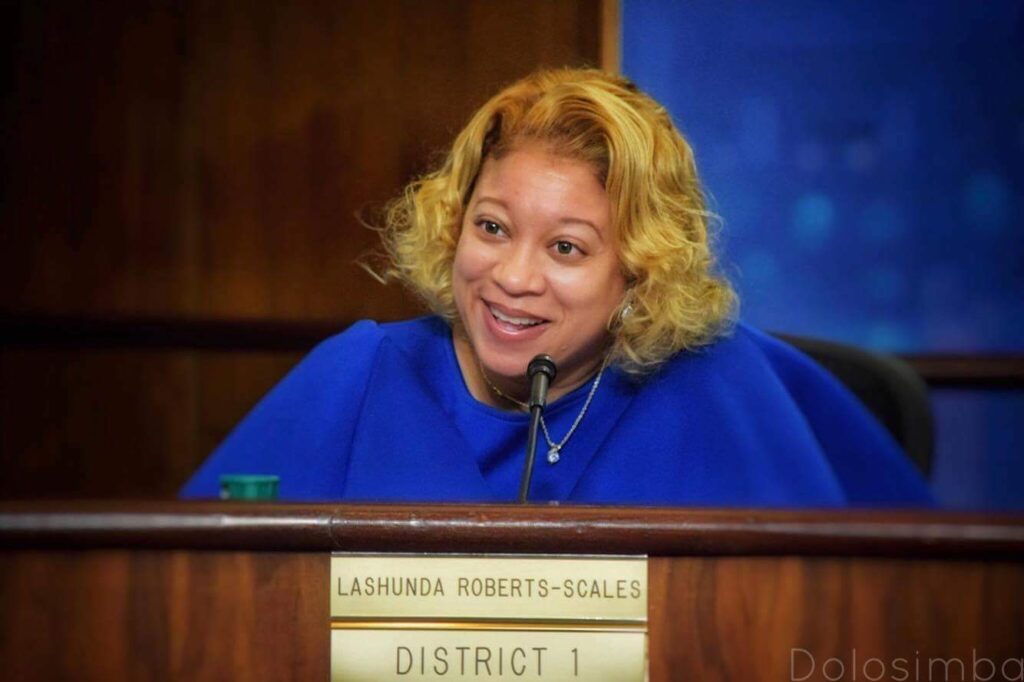
“Above all, you must remain humble; know when you’ve been blessed to have an opportunity and always share your gift.” Lashunda Scales has been serving her community in Birmingham for over 20 years. An entrepreneur, Birmingham City Councilor, Chair of the Governmental Affairs/Public Information Committee and a member of the Economic Development and Transportation Committees, it’s safe to say Scales is a very influential woman. She was born and raised in Birmingham, Ala. where graduated from the Birmingham City School System. She went on to attend Stillman College in Tuscaloosa, Ala. and married her husband Michael in 1991, at 20 years old. Scales took a bit of an “untraditional” path, never graduating from Stillman College; but becoming a homemaker, holding several jobs for family members until 2000 when she started her own Public Relations firm. “My PR skills are completely self taught,” said Scales. “I had no formal education in it. One day while working for my fathers national promoting business I called news stations and newspapers to get the word out about a new promotion and realized I really enjoyed what I was doing. I had found my niche.” Scales has spent the past 18 years building her business while serving her community. In 2003 she returned to college, and graduated from Jefferson State Community College in 2005. She was first elected to the Birmingham City Council, District 1 seat in 2009, a position that she has held since then. As a city councilor she coordinated the Birmingham City Council’s 50th Anniversary Swearing-In Ceremony and Music Festival, the Council’s Neighborhood Small Business Economic Development Summit, and host’s regular informative town hall meetings. Scales completed Harvard’s Leading Economic Growth program from the Harvard University Kennedy School in 2015, and completed the 21st Century Leadership program through the same school in 2016. She also graduated from Leadership Birmingham’s program in 2016. She and her husband Michael live in Birmingham, and have two adult children. Scales is an ambitious woman with a story that many young women can relate to and was kind enough to answer some of Alabama Today’s questions about her life, work and influences: How have other women influenced your success? There are three women who have influenced my personal life – my mother, who was a single parented and worked very hard as a nurse to raise four children on her own; my grandmother (my mother’s mother) who was an advid homemaker; and my father’s mother, who was a highly recognized entrepreneur until her death in 2012. Politically, Shirley Chisholm, Elizabeth Warren and First Lady Michelle Obama. Chisholm for her courageous stance against powerful political machines and special interest groups seeking to overpower the will of the people’ through the use of their influence. Senator Warren for her strong stance on issues affecting ‘blue collar’ workers and our country’s most vulnerable citizens. Obama for her ability to assume the role of first lady while savvy enough to use this role to impact the lives of citizens who are often overlooked and underserved. I am inspired by these women because they used their political positions to effectively change the lives of others. What shaped your desire to serve Birmingham through the city council? For me, it was divine inspiration. 14 years ago, I partnered with 10 Birmingham City Schools on Birmingham’s east side with the intent to make a transformative difference in the community where I live. I believe students, if given proper exposure and opportunities can change the world. To to help senior citizens by providing a better quality of life is very rewarding. That is by using my position to change laws, policies and by being apart of the legislative process that directly impacts citizens lifestyle is what brought me to public service. What has been your favorite area of service, and what is your favorite thing about that position? I’ve always enjoyed working with youth and senior citizens. I love being able to impart the life lessons and education that I have received, to students so they can not only achieve great things, but be better than myself at a much younger age. I also enjoy working with senior citizens, because I cherish the mutual trust that we have in one another. My constituents trust me to make decisions on their behalf and being a voice for the underserved, or a voice for the voiceless; is what I enjoy the most. How has being a small-business owner impacted your view of community service? Being a business owner has helped me to take the personalities out of politics. We are called to serve, yes, but as a business owner I look at budgets and public infrastructure from a business perspective. I look at it from the lens of ‘how would I spend money as a business owner to best meet the needs of citizens.’ Needs always come first and ‘wants’ come at a later time. It’s important to understand that in order to make a successful city, you must first make the people, and the neighborhoods they live in successful. What advice would you give to young women who want to start their own business or politicians? If you want to start your own business, you have to be able to count the cost of your endeavor. There has to be a need for your product or service and you have to have realistic goals both short term and long term to be successful. Even in business you should think of how you’re providing a service that no one else has. You have to be committed to your craft and understand that you will have ups and downs, but commitment equals success. You have to commit not only the initial product, but to reinventing that product to guarantee your long-term success. My company is ever evolving, because I stay on The cutting edge of my company’s presentation to potential clients and by creating innovative ways to keep my company relevant. If you want to serve in a public office, again count the cost of your endeavor. Your public
Birmingham City Council approves $90M BJCC expansion
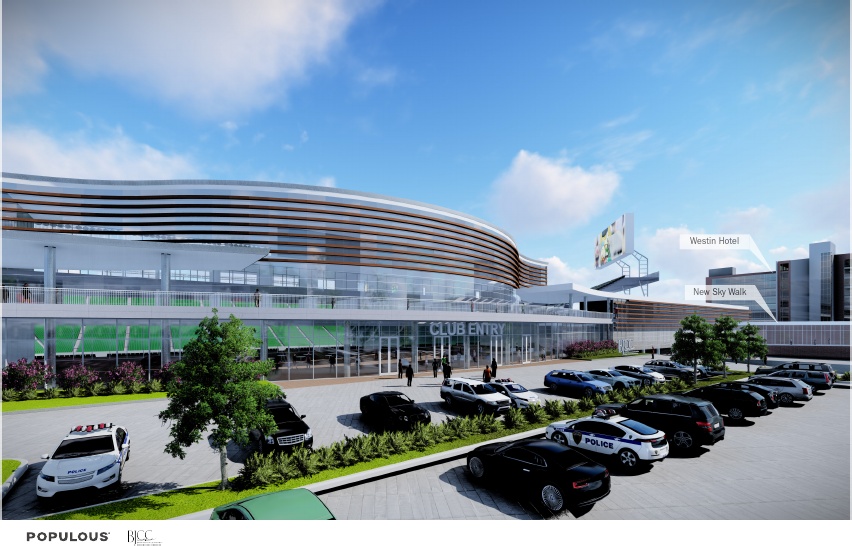
The Birmingham City Council on Tuesday approved a controversial $90 million investment over the next 30 years to renovate the Birmingham-Jefferson Convention Complex (BJCC) including construction of a new downtown stadium. After hours of public comment, councilors voted 6-3 in favor of the project. Councilors Shelia Tyson, Darrell O’Quinn and Lashunda Scales voted against the measure. The vote follows a vote in the State House last week where lawmakers approved a 3 percent tax on automobile leases and rentals in the county to help support the new stadium, renovations and expansion at the BJCC. The city will pay $3 million annually for the expansion. They will be joined by several other outside entities contributing to the expansion including Jefferson County, which will pay $1 million per year for 30 years. The BJCC Authority has also committed $10.7 million, and UAB and its corporate partners will pay $4 million for 10 years. Following the council meeting, Birmingham Mayor Randall Woodfin tweeted 100 percent of the money generated from this project will go to funding revitalization efforts for all of the city’s 99 neighborhoods. Thank you Birmingham! #PuttingPeopleFirst pic.twitter.com/r360835jFE — Randall Woodfin (@WoodfinForBham) March 27, 2018 The master plans for the renovation include: Notable items of the master plan include: An open-air stadium north of Uptown District with 45,000 fixed seats programmed to be expandable to 55,000 with a pre-designed temporary seating plan. Interviews and program requirements were conducted with stakeholders and potential users of the stadium, including the University of Alabama at Birmingham and ESPN. Legacy Arena would get a facelift, with an updated façade on the outside, new entrances, an added suite level and premium club space. The flow of the concourse will be improved and an upper level concourse added. It will also include enhanced food and beverage locations and options and improvements to the overall guest experience for sporting events, concerts and family oriented programming. The piazza outside of the arena will be renovated to feature a more open plan that will serve as a natural gathering and prefunction space encouraging activity and anchoring the pedestrial flow around the arena, concert hall and theater. Establishing a consistent and effective wayfinding experience throughout the BJCC venues to better guide attendees to their appropriate destinations and creating a stronger sense of place. The open-air stadium is expected to be the future home of UAB football games. After the council’s vote, UAB Blazers head coach Bill Clark tweeted his excitement and approval. Huge Day for Birmingham!!! Proud of great leadership who believe in where our City is headed. #WTD #GreaterBHAM — Bill Clark (@CoachBillClark) March 27, 2018 Watch live coverage (previously recorded) of the Birmingham City Council meeting:
Birmingham residents question necessity of new downtown stadium
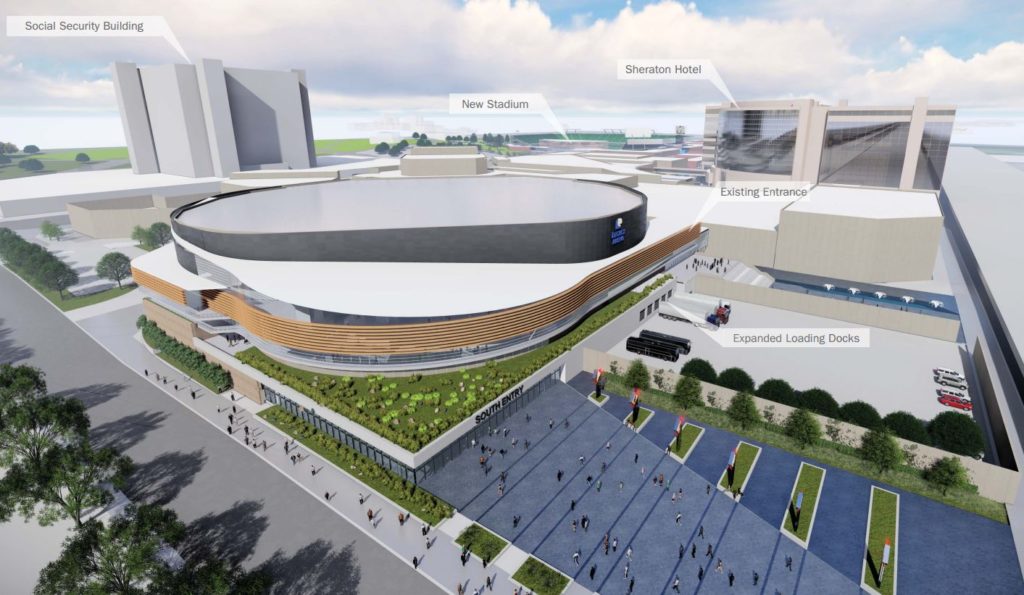
Earlier this month, the Birmingham City Council approved supporting the renovation of the Birmingham-Jefferson Convention Complex (BJCC) including construction of a new downtown stadium. The 7-0-1 vote — Councilor Lashunda Scales abstained and Councilor Sheila Tyson was not present — followed lengthy debate over the development. On one side, Mayor Randall Woodfin, a proponent of the new development argued it would bring much-needed revenue to the Magic City. Meanwhile, on the other side, opponents questioned the necessity of the 30-year, $90 million project. Councilor Scales abstained from the vote, but not before questioning the project and speaking out against it. “You said the expansion has been talked about for years, and you’re absolutely right,” Scales directed to Woodfin. “But we’ve also been talking about dilapidated homes for years, we’ve been talking about overgrown lots for years, we’ve been talking about how we don’t have money for schools for years. So when are we going to get to the meat and potatoes of talking about people. People in Birmingham, Mr. Mayor, are hurting.” Scales is among the growing opposition for the downtown stadium. She and other opponents, believe the city should invest 91-year old Legion Field located to the west of the city instead. “I wanted to be on a team that was for everybody,” Scales said before the Council’s Feb. 6 vote. “Mr. Mayor, if you build this stadium where you have Legion Field, I will be your best cheerleader… But if we’re not going to do that, I think it’s a disservice to the poor people.” Scales made it clear in her questioning, she believes the BJCC project is another example of the City of Birmingham ignoring the poorer neighborhoods in favor of the downtown area. On Thursday, Birmingham-Democrat, State Rep. Juandalynn Givan hosted a community meeting at Parker High School to discuss the proposed six-percent tax on automobile leases and rentals in Jefferson County, which has yet to be introduced, to fund the new stadium. “We want the world to know that Legion Field is just as iconic for us as Vulcan is for (others) in another neighborhood,” Smithfield resident Pat Davis told AL.com. “Stop the stadium. Build up our neighborhoods. Keep campaign promises,” posted Birmingham-resident Michael Jones on Facebook.
Randall Woodfin begins search for new Birmingham police chief
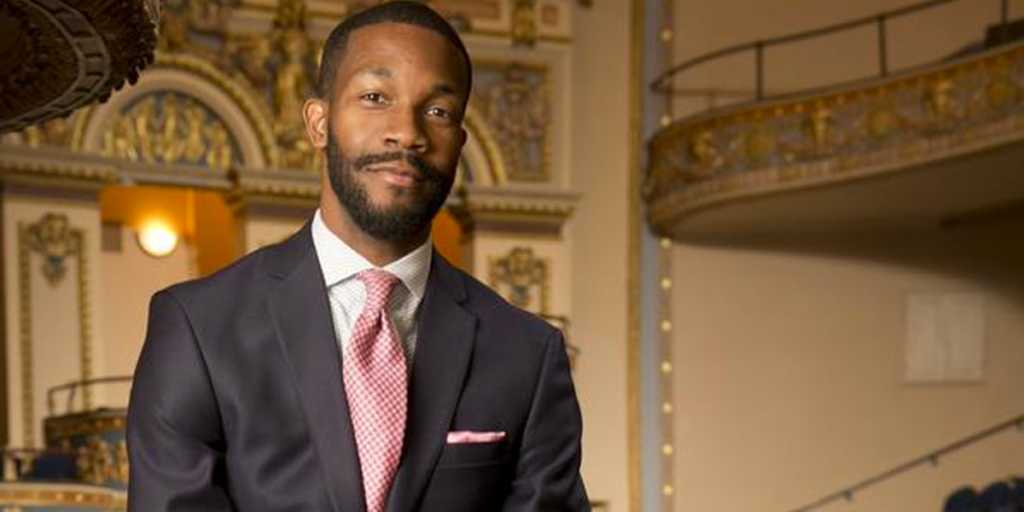
During Tuesday’s city council meeting Birmingham Mayor Randall Woodfin announced a national search for a new police chief and several new department heads. Siena Consulting will be conducting the the search, which will cost the city $124,000. The company will find candidates for the directors of human resources, finance, information management services and public works positions. Woodfin said the search for a new police chief will be “overly open” and that the public will be kept up to date on the status of the search. He doesn’t know if finalists for the position will be made public. During the same meeting Tuesday, Woodfin announced his entrance into a contract with Crowe Horwath LLP and PGV Advisors. They will collaborate with the city on a performance appraisal of operations to determine if city departments are staffed and funded at the correct levels. The following departments will be assessed: finance, community development, human resources, Information Management Services, police, municipal court, law, public works and planning, engineering and permits. The costs associated with this contract were not immediately released. The search for a new police chief comes in the wake of former police Chief A.C. Roper stepping down from his post on November 29, the day after Woodfin took office. Roper served as police chief for 10 years. Woodfin said Roper’s departure will allow the city the freedom to “take a fresh look at solutions to address one of the most pressing issues facing our city, which we all know is crime.” In his State of the City address given Tuesday afternoon, Woodfin stated his administration will “be working in every area of the city to reduce crime, eliminate blight and increase the safety and security of all citizens.” An abundance of retirement announcements and resignations have followed Woodfin’s induction. Human resources director for the city, Peggy Polk, also announced her retirement on Nov. 29. Stephen Fancher, director of public works retired from his post. Information Management Services director Srikanth Karra announced he is leaving his post for another opportunity. Meanwhile Tom Barnett notified the mayor’s office of his retirement from the Finance director position on Tuesday. When Woodfin took office, both the director of community development and director of economic development were dismissed from their positions which have since been filled by their deputy department heads. Since taking office he has reduced the number of Bell appointees from 95 to 48. Woodfin said internal candidates would also be considered in the national search.
Birmingham City Council sets public hearing for LGBTQ-inclusive human rights ordinance

A nondiscrimination ordinance, which has been in discussion for the last four years, will be on this month’s Birmingham City Council agenda. Originally introduced to the Public Safety Committee by Council President Johnathan Austin in 2013, the “Non-Discrimination Ordinance” seeks to protect any person who wishes to enter into a contract with the City of Birmingham from all forms of discrimination, which could be based on, “race, color, religion, natural origin, sex, sexual orientation, gender identity, disability, or familial status,” according to the most recent draft. Supporters of the ordinance are already rallying support on Facebook for the Sept. 26 Council meeting. “While speakers are important, we also need to let the council know that Birmingham supports this ordinance, so we need you to show up even if you don’t plan to speak!” posted the organizers of the event, “Show Up & Speak Out for Fairness.” “We want to pack the chambers and the hallways, so bring some friends with you!” the post continued. The hearing is scheduled from 9:00 a.m. – 12:00 p.m. Eva Kendrick, Alabama director for the Human Rights Campaign, said she was encouraged by the progress being made in Birmingham and hopes the Council will not get “bogged down in the legality” and instead focus on why this is needed. “In Alabama, LGBTQ citizens and others who may be under-protected by the Civil Rights Act of 1964, don’t have local accountability measures when it comes to discrimination,” said Kendrick. “What this ordinance would do is it would lead in creating local accountability. It seems like we’re more stuck on, ‘can we do this,’ as opposed to ‘why we need to do this.’” *This article has been updated to reflect the change in date of the meeting.
Birmingham councilman Johnathan Austin urges mayor to defy state law, remove Confederate monuments
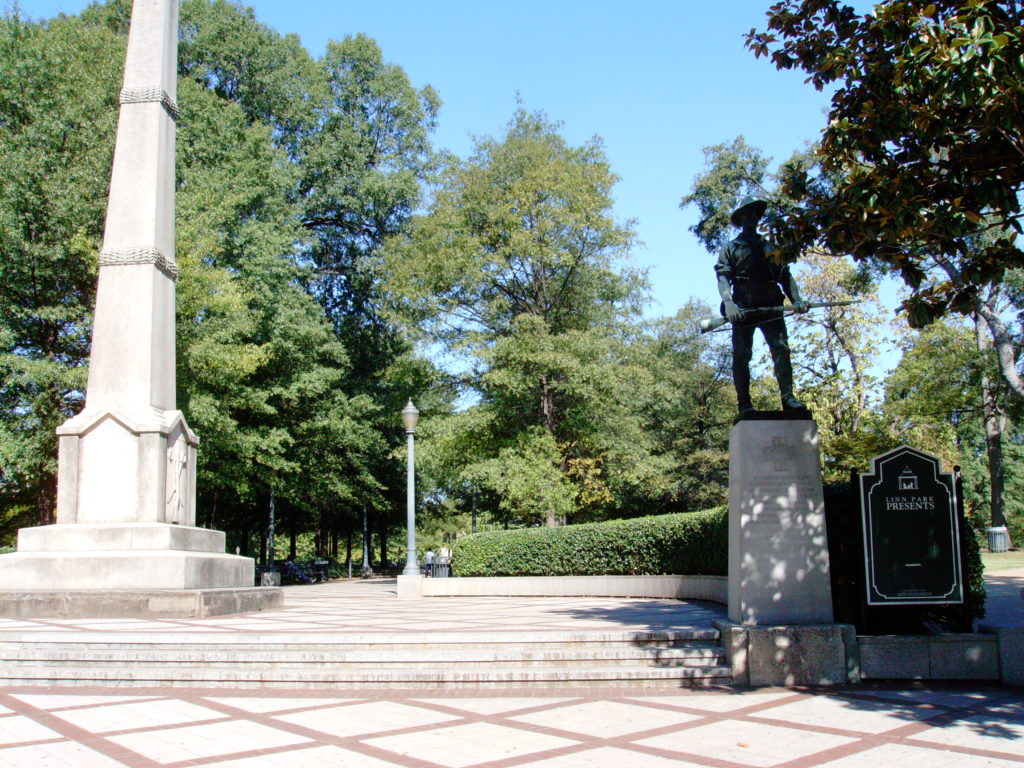
The president of the Birmingham City Council called for the unlawful removal of Confederate monuments from public property on Tuesday. According to AL.com, Council President Johnathan Austin asked Mayor William Bell to defy state law and remove the monuments at a city council meeting. “We need to take them down,” Austin said. “We will deal with the repercussions after that.” The monuments are “offensive to our citizens,” Austin continued. Austin’s comments were made as the debate over confederate monuments has reignited nationwide in the response to the tragedy and chaos of the Charlottesville, Va., characterized starkly by the death of a 32-year-old woman after an Ohio man drove his car through a crowd of counter-protesters who challenged a white nationalist rally. Earlier this year, Gov. Kay Ivey signed a bill into law preventing the removal of historic statues that are more than 40 years old from public spaces, making the removal of the confederate monument found in Birmingham’s Linn Park illegal. “The goal of this bill is to protect all periods of Alabama’s history for our children and grandchildren to learn from,” said the bill’s sponsor Tuscaloosa Republican Sen. Gerald Allen back in March. “Too often, in convulsions of political correctness, a local official will hastily rip down a monument or a statue because it offends the sensibilities of someone, somewhere.” Nevertheless, Mayor Bell said he is actively looking into challenging the law. “I am not in the business to break the law, I am charged to protect,” Bell said.
Bill voiding Birmingham Council’s 233 percent pay increase becomes law
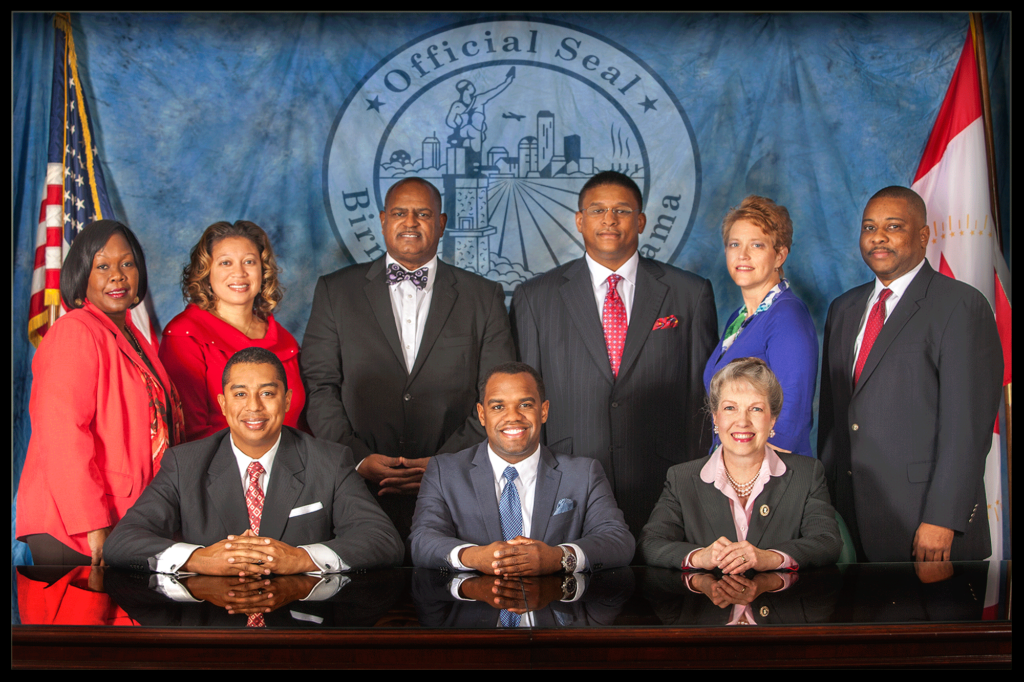
Legislation blocking a 233 percent pay raise for the Birmingham City Council was enacted into law on Friday. In 2015, the Birmingham City Council voted to raise the salary of its own council members without public notice, from $15,000 to $50,000, a 233 percent increase. The raise was scheduled to go into effect in August 2017, following the municipal elections. However Vestavia Hills-Republican Senator Jabo Waggoner took issue with what he considered an abuse of authority and sponsored SB247 to correct the Council’s decision. His bill would instead set council members salary every four-years by the State Personnel Board by determining the median household income of the city. “They’re a creature of the legislature and if they’re not going to conduct themselves and control their pay in a reasonable manner then we feel like we have to step in,” Waggoner told ABC 33/40. The state Legislature approved the measure earlier this month, and the bill was sent to Gov. Kay Ivey for approval. On Friday she forwarded the bill to the Secretary of State’s Office where it was enacted without her signature. All’s not lost for Council members. Under the new law, they will still enjoy a pay raise, as the Birmginham medium income is roughly $32,000 — making for a $17,000 increase for the new Council.
Robert Bentley: Alabama will not support sanctuary cities that shelter illegal immigrants
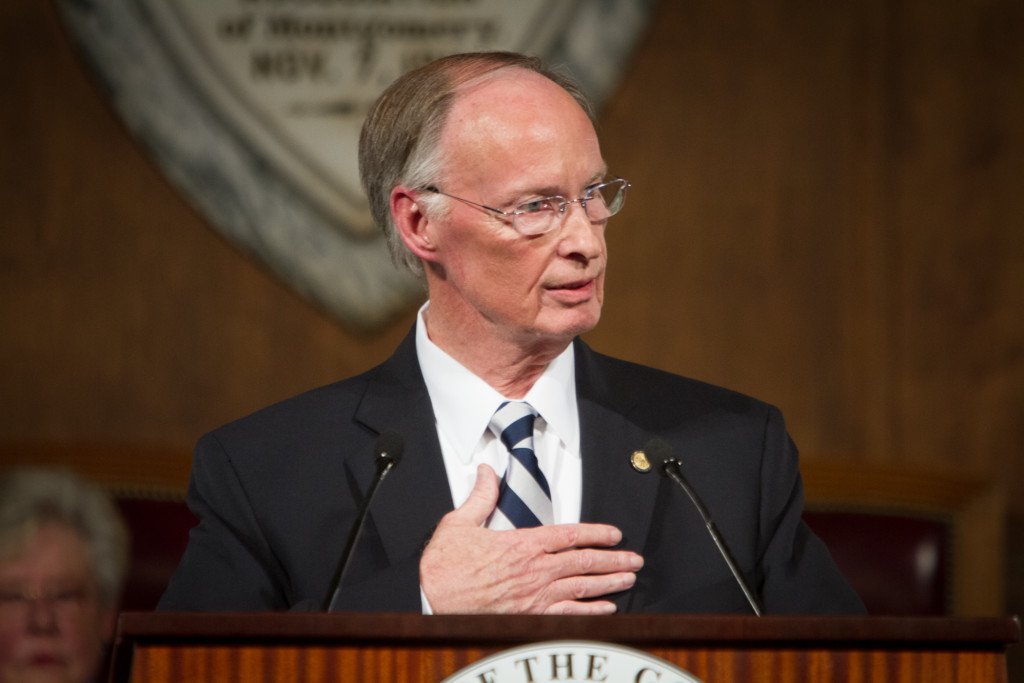
Gov. Robert Bentley on Tuesday announced Alabama will not support sanctuary cities in the wake of a resolution passed by the Birmingham City Council. “President Trump has already taken decisive and necessary action to enforce our nation’s immigration laws,” Bentley said in a news release. “Alabama will not support sanctuary cities or institutions that harbor or shelter illegal immigrants, and are in clear violation of the laws of the nation.” The Birmingham City Council approved a resolution on Tuesday expressing support for illegal immigrants but not officially declaring the city a sanctuary — an official designation given to cities that follow certain procedures that shelters undocumented immigrants.
State Senate OKs minimum wage uniformity, blocks Birmingham increase

The Alabama State Legislature is pushing back against cities hoping to set their own minimum wage standards. Thursday, the Alabama Senate voted in favor of HB174 — also known as the Alabama Uniform Minimum Wage and Right to Work Act — a bill that would block cities from setting individual minimum wage rules. The Alabama House already approved the bill. The measure was approved by a 23-10 vote, mainly on party lines. “Senate Republicans deserve credit for championing and affirming that free enterprise creates opportunity for all,” said Sen. Jabo Waggoner (R-Vestavia Hills), a sponsor of the bill. “By passing the Alabama Uniform Minimum Wage and Right to Work Act, we are protecting job creators from having to deal with dozens of different minimum wages and labor rules that would vary from city to city.” The bill, which went directly to Gov. Robert Bentley for his signature, prevents local governments from instituting a minimum wage and requires all cities and counties in Alabama to use the federal wage standards as a measure. In addition, the legislation cements Alabama as a right-to-work state by giving the Legislature alone authority to establish uniform employment policies and regulations of collective bargaining. “We want businesses to expand and create more jobs – not cut entry-level jobs because a patchwork of local minimum wages causes operating costs to rise. Our actions today will create predictability and consistency for Alabama’s economy, which benefits everyone,” Waggoner said. The Senate’s action comes amid a battle between Birmingham and the Alabama Legislature over minimum wage standards. Birmingham City Council voted Tuesday to increase the city’s minimum wage to $10.10 an hour, effective the next day. In August, council originally had voted to begin the $10.10 minimum July 2017. Bentley signed the bill less than an hour after the vote, effectively blocking the Magic City’s efforts.
At long last, Uber launches in Birmingham at 4 p.m.
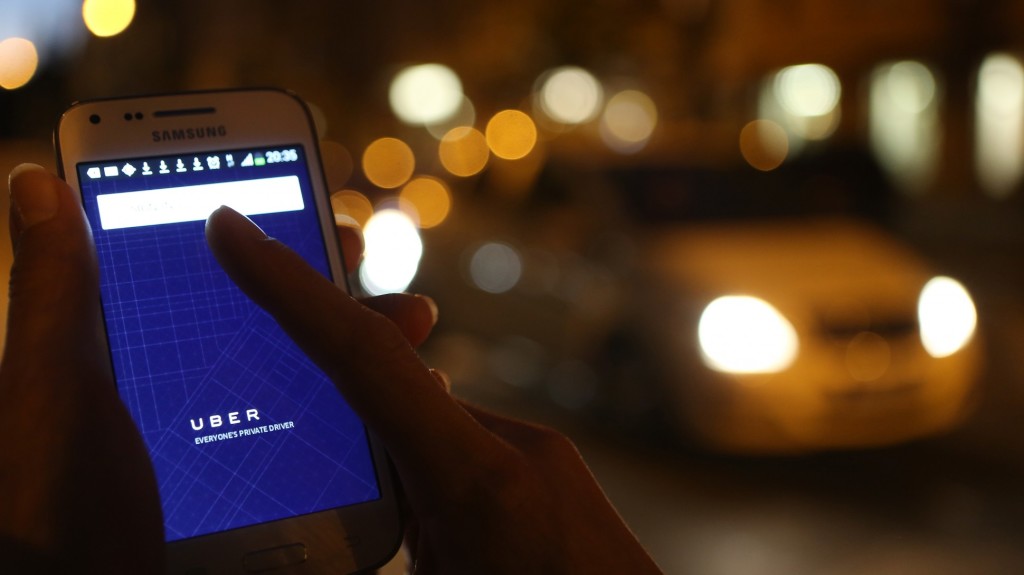
Magic City residents have something to celebrate as 2015 draws to a close: Uber is at long last launching in Birmingham on Tuesday afternoon. After more than a year and a half of negotiating with the Birmingham City Council, the San Francisco-based ride-sharing company will officially start its service in the Birmingham metro area at 4 p.m., a little more than 48 hours before New Year’s Eve festivities commence. “Residents of Birmingham have been eager to get expanded access to safe, reliable transportation options and the economic opportunities that Uber brings to the community,” said Tom Maguire, general manager for Uber in Alabama. “We are thrilled to finally be able to start operating here, and I want to personally thank city officials for all their hard work and support to make this happen.” Organizing private rides for consumers using a mobile app, Uber launched in 2009 and went international in 2012. Until today, Birmingham was the largest city the U.S. without Uber available to to its residents and visitors. But Uber is no stranger to the Yellowhammer state; Mobile and Tuscaloosa already have Uber available in their cities. To use Uber, all a user needs to do is download the app, sign up and enter credit card information in order to pay for the rides. New to Uber? You can sign-up and your first ride is on us (up to $15).
Birmingham City Council gives Uber the green light
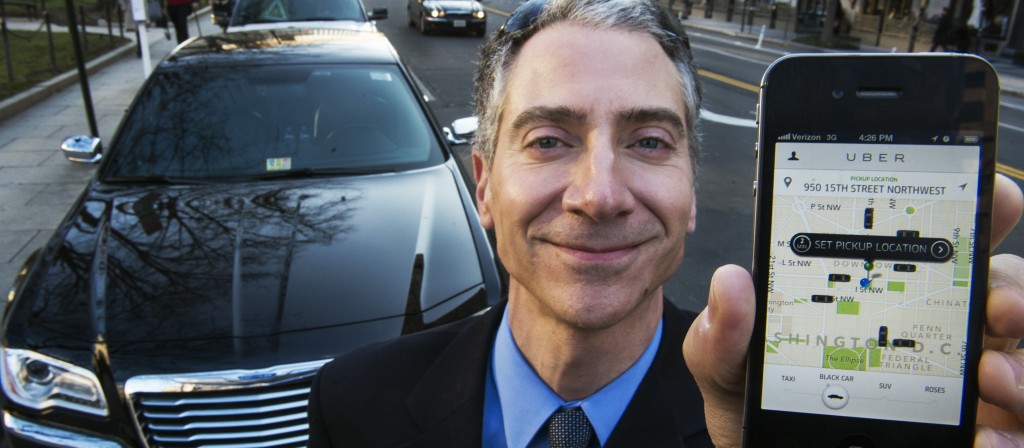
After a months-long push to allow Magic City residents to hail rides from the popular ridesharing app Uber, Birmingham City Council voted to approve an ordinance that would do just that on Tuesday. Representatives from the firm lauded the move popular service, along with competitors like Lyft, to open up shop in Alabama’s largest city within weeks. “Today’s action by the City Council is a win for riders, drivers and the city of Birmingham. We thank Council President Austin for his leadership, and look forward to bringing safe rides and economic opportunity to the Magic City in the coming weeks,” said Tom Maguire, General Manager for Uber’s operations in Alabama. Under the just-passed ordinance approved by a vote of 7-1, Maguire said he hopes Uber can begin offering rides as soon as the end of 2015. The ordinance – which Uber urged users to support via an in-app appeal – came with a last-minute amendment offered during the meeting. The amendment created a six-month provisional window during which the city will evaluate the status of safety, taxation, and other municipal concerns. City Councilors Valerie Abbott voted no, while Councilor Kim Rafferty abstained. Council President Johnathan Austin came out in support of the bill, after missing a meeting last month that had to shut down for lack of a quorum. Austin blamed the poor turnout by members on the the meeting’s proximity to the Thanksgiving holiday. Councilors Lashunda Scales, Valerie Abbott, William Parker, Sheila Tyson, Jay Roberson, Steven Hoyt, and Marcus Lundy also voted in the affirmative. The move came after about an hour and a half of debate, including some questions about city legal staff about how Uber’s vetting process for drivers. The amendment creating the six-month review period quelled those and other questions nay-sayers presented Tuesday. The ordinance doesn’t go into effect immediately, however. Birmingham Mayor William Bell – who had signaled his support for ridesharing in the past – must sign it in order for it to take force. Ride-hailing firms must then apply for and receive licenses for prospective drivers. The smaller municipalities of Homewood and Mountain Brook also recently passed ordinances to allow Uber et al. to operate within those city limits, making Birmingham the third city in the Yellowhammer State to open its roads to the services, though provisionally, at least for now.
Email Insights: What just one year of Uber could do for the Magic City
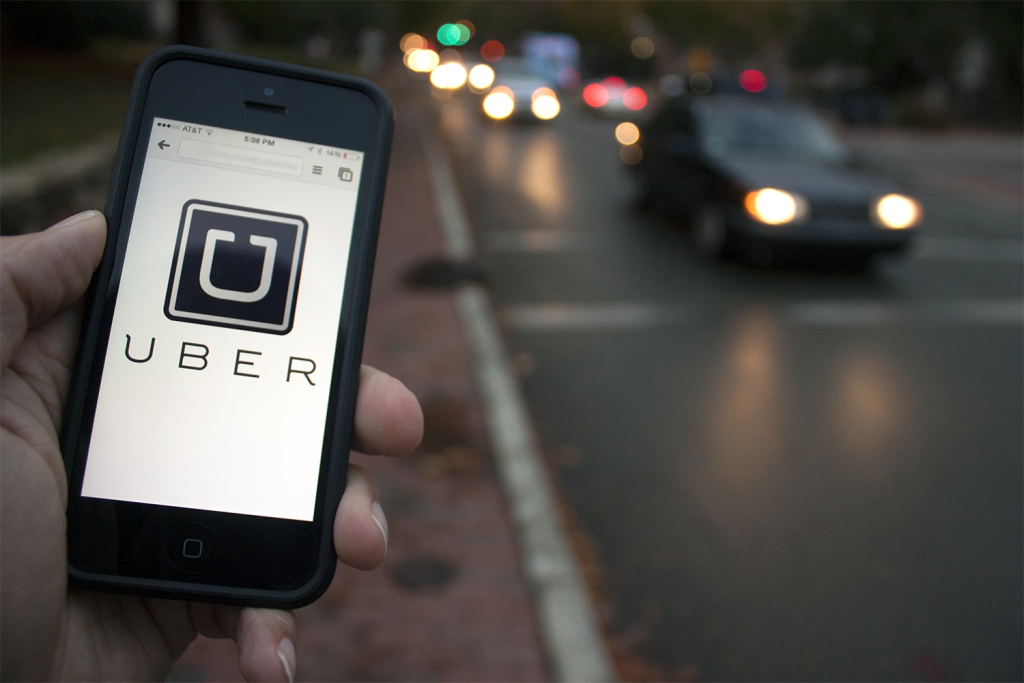
Another week and the Magic City still doesn’t have Uber. Over two and a half months ago Uber executives travelled to the Birmingham to meet with the city’s Committee of the Whole to discuss the potential for ridesharing companies to operate in the city. Despite promising discussions, the city has done very little to move the ball forward. Instead, the Birmingham City Council focused on drafting an overhaul the city’s transportation code. “This is a complete rewrite to all sections of the code, including the horse-drawn carriage section, and we need to hear from as many stakeholders as possible,” Councilor Kim Rafferty said. “This input will ensure that we have addressed or properly regulated all forms of motorized vehicle, pedicab, and horse transportation in the City of Birmingham, without compromising the regulatory integrity of other jurisdictions in which these companies and services may work in.” The council took public comments on the proposed changes through Friday, and now Magic City residents will wait for a special called meeting at 5 p.m. Nov. 17 at city hall to hear more about the comments and code updates. Meanwhile Uber is still making a public case as to how it will help improve life in the Magic City while simultaneously doing everything they can to alleviate any fears Birmingham officials may have, including publishing in in-depth look at the impact of just one year of Uber in the city would look like. For a look at what just one year of Uber could do for the Magic City, check out the email below: As the largest metro area in Alabama, Birmingham has a lot to offer residents and visitors. Beyond being the cultural and entertainment capital of the state, downtown Birmingham has great restaurants, shops, and dozens of apartment buildings under construction. It’s also seen job growth over the past five years and is ranked high for millennial entrepreneurs. But the greater metro area lacks transportation options to support downtown Birmingham’s resurgence, and 24 percent of Jefferson County residents are still underemployed. Ridesharing can help bridge such gaps. Options like Uber will offer safe, reliable rides in the community while simultaneously providing residents with an opportunity to make supplemental income. Using similar Uber cities as a comparison, we looked into the potential impact that Uber could have in Birmingham after just one year of operating uberX – our ridesharing product – under a sensible set of regulations that reflect the business model. Take a look at the projections to see just what Uber could do for Birmingham when it comes to moving people, offering economic opportunity and making our communities safer. Providing a Safe, Reliable, and Affordable Transportation Option Tens of thousands of people in Birmingham – and in the surrounding suburbs – have opened up the Uber app looking for a safe ride. It’s clear there is great demand for more transportation options throughout the greater Birmingham area so that people can safely travel to their destinations. We project that Birmingham residents and visitors will complete more than 116,000 trips in our first year of operating in the city. Having an Impact on the Local Economy Uber will undoubtedly have a positive impact on the Birmingham economy. Local drivers will have the opportunity to use Uber and turn on their ability to work and make supplemental income at their leisure. If Uber is able to operate our ridesharing product, uberX, we predict that more than 670 greater Birmingham area residents will be partnering with Uber in just the first year of operations. These driver-partners will have the potential to earn a combined $1,500,000 in net fares in the first year, with room to grow in future years. Making Birmingham a Better, Safer Place to Live Whether it’s your average Friday night or day of a big event like Magic City Classic or Sloss Fest, the increased availability of a reliable, affordable late night transportation option will provide a dependable alternative to driving under the influence in Birmingham. According to MADD, in the past year in Alabama, there were 260 drunk driving fatalities (.08 BAC or higher), representing 30.5 percent of all total traffic deaths, a 8.3 percent increase from the previous year. In Baton Rouge, a city similar to the size of Birmingham, DUI arrests are down nearly 18 percent in a year since Uber entered market. As the graph below shows, we expect to see demand peak at the same time alcohol related crash fatalities are at their highest — right around “last call” during late nights. This means Uber has the potential to save lives in the Magic City since people are expected to request a safe, reliable ride with Uber at times when they may have otherwise gotten behind the wheel. Despite being able to have such an impact in the Magic City, the public proposals thus far are unworkable and don’t reflect the ridesharing business model. For Uber to come to Birmingham, city officials need to pass pro-innovation regulations that will enable residents and visitors to use the Uber they’ve experienced and enjoyed in cities around the world. More than 60 other U.S. jurisdictions have been able to accomplish this goal and we’re confident Birmingham can do the same.


